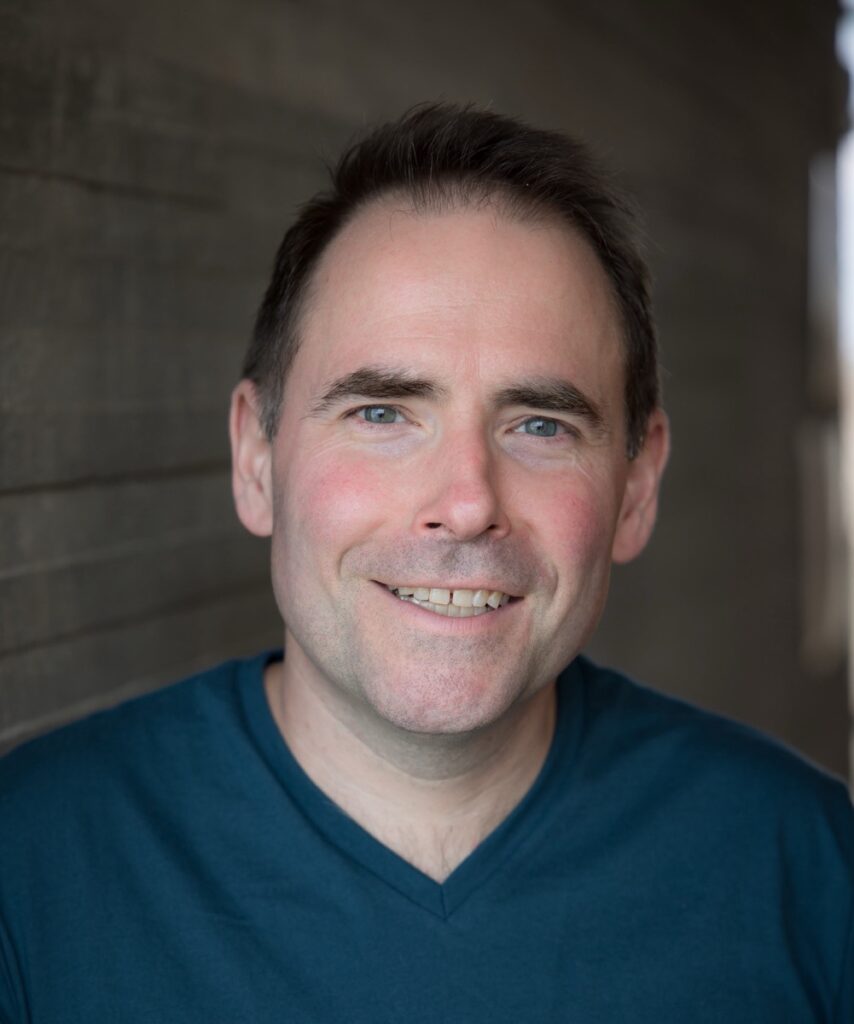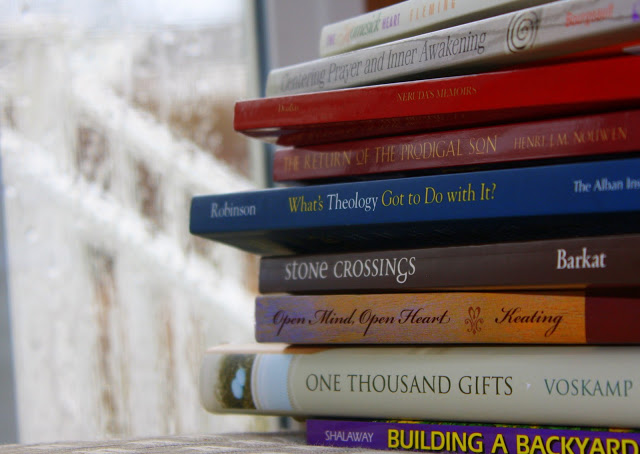 I recently had a fascinating conversation with Will Dennis, a high school theology teacher and founder of Unscripted Productions, an improv studio dedicated to helping individuals and teams discover their full potential. With a unique background spanning professional theatre, campus ministry, and applied improvisation, Will currently teaches world religions and discernment at Villa Joseph Marie, an all-girls Catholic high school in Pennsylvania.
I recently had a fascinating conversation with Will Dennis, a high school theology teacher and founder of Unscripted Productions, an improv studio dedicated to helping individuals and teams discover their full potential. With a unique background spanning professional theatre, campus ministry, and applied improvisation, Will currently teaches world religions and discernment at Villa Joseph Marie, an all-girls Catholic high school in Pennsylvania.
What makes Will’s work particularly compelling is his conviction that improv—rooted in radical acceptance and contribution—can genuinely change the world. In our discussion, we explored the profound connections between improvisational theatre and spirituality, particularly through the lens of Ignatian principles like presence, discernment, and finding God in all things. Will shared how improv has become a laboratory for experiencing deep spiritual truths about acceptance, vulnerability, and collaborative co-creation, offering insights that bridge the sacred and the seemingly silly in remarkable ways.
Andy: Will Dennis is a high school theology teacher and founder of Unscripted Productions, an improv studio that helps individuals and teams discover their full potential. With a background in professional theatre, campus ministry, and applied improvisation, Will currently teaches world religions and discernment at Saint Joseph Marie, a Catholic high school in Pennsylvania. His work is driven by a central belief that improv, radical acceptance, and contribution can change the world.
Will, thank you for taking the time to chat this morning.
Will: Yeah, no, thanks so much for having me, Andy. I’m excited.
Andy: You reached out after discovering my blog and you’ve been using my book with your theology students. In your writing you’ve said that you’ve learned more about your relationship with God through improv than through formal Catholic education. Can you tell us a little bit about that journey?
Will: Yeah, for sure. And I feel bad—I don’t want to give Catholic education a bad rap, right? I’m a product of 16 years of Catholic education. I’m so grateful for it, but it’s sort of that notion of love in action, right? Like, so much of my experience of Catholic education is, you know, that K through eight model of “Jesus loves me,” which is real important and all of that. But I was always really interested in theology. I was always drawn to theology. And then I was lucky enough—I went to a Jesuit high school and a Jesuit university. Being introduced to this concept of finding God in all things and a very active spirituality, very active force of love in the world.
So improv almost became my lab unexpectedly as I sort of launched out. And again, my background is in theatre and I always considered theatre to be a spiritual experience—an experience of collaboration, of community, of living according to a purpose of bringing joy to other people.
And then I started learning improvisation and all of these ideas or these principles and it just crystallised for me. So this experience of acceptance of one another as human beings and then participating in one another’s brilliance, so to speak, or one another’s gifts with a sense of generosity and gratitude. That all just started making huge sense to me and brought me closer to my own spirituality, my own relationship with God. It’s an encounter with love. It’s an encounter with another human being in a way that forces you to be fully present. And as such, sort of opens you up to the depth of spirituality that’s below the surface, whether you realise it or not.
Andy: When you and I had initially talked, I had told you that I had done some improv classes as well, and I found also this natural spirituality to it, especially about that encounter of the present moment. And you wrote that improv cannot live in the past or the future. It only exists now. And there’s very much that idea of that sacrament of the present moment. Can you tell me a bit more, maybe you have an example of when you were doing improv where you, or maybe what the practice of improv brings to that awareness of the present?
Will: So it is, it’s that thing of—you know, when I teach improv or improvise with a team, that those are where the traps live. So when people try to get too far into the future, there’s no listening that’s happening and you, the collaboration dismantles itself because you can’t be present to whatever the offers are happening right in front of you. And when people are too focused on the past and like what happened before, again, it pulls you out of the present. So they’re also, the two easiest things to do as a beginner in improvisation is to sort of get up and talk about something that happens or about something that’s going to happen. And the hardest thing to do in improv is just to do the thing, is to do the thing in the present moment. And yet that is where it’s fully alive.
So, you know, we have a phrase, uh, talking heads, a talking heads scene, or a game. That’s usually when folks are in one or the other. Right. Stuck in the past being like, “Oh yeah, no, I did this the other day.” “Oh, did you?” “Yeah, I did that before too.” And that’s usually when we stop and be like, “Great. Why? Why should any of us be paying attention? Like what is the most interesting moment in this?” Because if you’re telling us about something that happened as an audience, we want to see the thing that happened. So even if you go back in the past, right, which we do often sort of flash forward, flashback. You go to the present of the past, if that makes sense. So you go to the moment that was being referenced and then you bring that to life.
And yeah, I think in spirituality that’s essential, right? Like we are only gifted this present moment. And though we are informed by our past and we’re inspired by our future, it’s only the here and now that we’re invited into. That’s the invitation of the Holy Spirit. That’s the invitation of love is this present moment and how are we as fully alive as possible in this moment.
Because a lot of times, you know, you talk about anxiety or the feeling of anxiousness. And what it is, is just, it’s that fear of the unknown. It’s that fear of the future that pulls us out of the present. So even when you weave spirituality in with things like therapy, right, like cognitive behavioural therapy and the practices of grounding yourself in the present so that you’re just here and now. It allows you to be as open as, as vulnerable, and really as alive—as alive in this moment because the more fully alive we are in this moment, I think, the more promising our future becomes and the more foundational our past becomes.
Andy: And in Ignatian spirituality, we speak so much about that God resides in the present moment. Right? That God is active in the present moment. And you used that word active earlier. You also used the word traps. Were you speaking about traps as the past and the present being traps?
Will: There’s a ton of traps that exists in improv. And I think that’s another insight into spirituality as well, is all of the distractions or the attachments that might exist in the same way that these traps exist in improv.
Andy: In Ignatian language we might call traps, as you said, attachments. So there’s something there of indifference, you know, and you said you talk about improv is this radical acceptance and creative contribution, which just sounds so much like this idea of Ignatian indifference.
Will: Yeah. Right. It’s indifference or detachment or whatever you want to call it. It’s that notion of—when we talk about radical acceptance, we tend to, at least at Unscripted, we tend to talk about it in three phases. So it’s the first phase being the acceptance of one another as human beings with dignity, right? The second is the ability to accept, radically accept one another’s ideas or offers, but the other is to accept our given circumstances. And I think that is a real insight into indifference or detachment and to be at that place where ego gets cast aside, right? Desires get cast aside for the most part. You’re present to the moment and you love things, but you don’t love them so much that they control your life, that you’re willing to let them go and trust that they might return to you.
It’s almost impossible to succeed when we’re clinging to things and it soars. That’s what “yes, and” really is, is an ability to completely suspend your own ideas and participate in somebody else’s brilliance. And as a result, they participate in yours, and it becomes this beautiful collaboration or co-creation that leads to usually hilarity or just brilliance or whatever it is.
Andy: So the “yes and” right, that’s the first thing you learn in improv, right? That’s kind of the foundation of everything, of just that radical acceptance of offers. You know, and you had written, I think that in improv we don’t get to control the script, right? There isn’t a script and how hard it is just even in our lives to let go of our own agendas, our own patterns and scripts. You mentioned cognitive behavioural therapy. That’s often this like of reframing the narrative, right? We go about life with these narratives. Has improv, have these skills and gifts helped you in discernment and decision making in your own life?
Will: I think for certain in my own life, that just radical acceptance of the given circumstances. Right. I think what it does really well—improv is it puts you in a position to respond instead of a position to dwell, which is really helpful when it comes to decision making and things like that.
I think more, even more than that is it’s helped me in my work. So I teach 12th grade, so I’m with young people at a moment where they’re making a really big decision as far as what’s going to come next for them and the ability to walk with them and use not only improv, but shared experience and that notion that you alluded to Andy of, you know, sometimes not everything’s for you. And there’s tons of liberation in realising that something is for you. And when you come to discover what that is, you’re able to do it and to do it well in a way that propels you forward. And improv is really helpful in helping you understand that. That it is not your job to be like everyone else. It is not your job to know how to do everything. It’s your job to discover who you were created to be and then to boldly be that person in the world in a way that the world then returns to you. And I think that’s the biggest thing that I’ve learned in my own discernment, my own experience with improv as well, is that idea that I don’t have to have all the answers and I don’t need to be everything. I don’t need to be an expert in everything. I don’t need to know how to do everything. And it frees me up to experience some contemplation. Right. There’s that great Jesuit phrase, “contemplatives in action,” right? It’s sort of what we’re all called to be. And I think improv really does this, and you don’t think of improv necessarily as a contemplative practice, but it teaches us these principles behind improv. Teach us that the more we enter prayer and contemplation about where our spirit might be moving, right, where our soul is stirring, and then we pay attention to that. And then it frees us up to be purposefully active in the world.
We have a phrase that we use when we teach improv: “bring a brick and we’ll build the cathedral together.” And for me, that’s everything. It’s that notion of first come to understand what your brick might be. What is your native genius, your authenticity, your gifts, and then how do you line them up in such a way that allows for a collaboration as we sort of build this thing together? And trusting that, and sometimes you’re the foundation, right? You’re at the bottom there supporting others in a way that builds them up. And then there’s other times when you’re standing upon others and you’re using them for support and foundation as you journey up.
Andy: You know, when I first heard the brick metaphor, I was just blown away by that because I imagined—’cause in improv, you’re building a scene together, right? With your scene partners. But in this spiritual context or discerned context, like I imagine this sort of, you’re working with God, right? To build something bigger, right? And you contribute your piece to it. But the Jesuits also talk about co-labouring, right? We are collaborators with God. But there’s also that other part right of one another. You know, one of the things that I remember learning in improv classes was with your scene partner, don’t talk about the thing you’re doing necessarily. Focus on the relationship. Yes. Right. And how often in our lives when we’re focused on, you know, do I take this job or move or whatever it is, I’m focused more on myself and I kind of forget about the other people in my life that my decisions affect.
Will: Yeah. And we see it so much. You’re absolutely right. It’s like, focus on where are we connecting, where are we connected to one another? Right? Like if we belong to one another, then the most important element of that is that kinship or that relationship as we go to build. So we often, it’s funny, right? Like one of the things that I offer as advice for people is to do something or touch something first. So it’s obviously everything’s imagination. So we build an environment together as well. But because people tend to obsess and loop over what they’re doing. I often say to people, “Great, just do something first.” By merely doing what it is that you do and doing it well, it frees you up to pay attention to all of the other stuff.
Just, in my own experience, some of the strongest relationships that I have in my life, some of the strongest communities I’ve been a part of have been built around the work. And it’s like, okay, let’s do the thing. And once the thing is out of the way, now I’m connecting with human beings, right? We think of like, you know, service trips and like immersion trips and things like that, it’s never really about building a house, right? For instance, it’s never really about running a summer camp. It’s about solidarity with the humans that we come to meet, and hopefully discovering the kinship and reflecting our souls for one another.
Andy: When I did my improv classes, I think the thing I liked the most was the people I—getting to know people that we were laughing together. There was something just so human that when we laugh, and we recognise the absurdity of life, we somehow bond and there’s something healing. Talk a little bit about what you see as healing in the gift of improv.
Will: I think the biggest thing is, you alluded to it, right, laughter. But the, it’s also the permission to embrace our own brokenness. Like there’s never an expectation of perfection in improv in the way that sometimes there is in life. It’s sloppy, it’s messy. There’s no traditional metric for evaluation. Like you can’t get a hundred on an improv game. You can’t get a hundred in a scene. It’s just that doesn’t happen. So I think that is huge. Is allowing us to embrace our own brokenness. And it requires vulnerability. It requires real deep vulnerability.
Another thing that I’ve come to explore or I’ve come to see, and this is, I think, healing in so many facets. So whether it’s addiction recovery, whether it’s anxiety, probably trauma, but I’m not in no place to speak as an expert on that. Is we are so conditioned as human beings to anticipate or to assume that catastrophe is on the other side of the unexpected. And what improv does is it introduces the reality that more often than not, joy is on the other side of the unexpected.
I talk about a deep spirituality. The spirituality of surprise, I think is one that really lends to healing is we so often assume that fear or catastrophe is the result of the unexpected, when in reality it’s joy and improv allows us to experience that in a safe context.
Andy: There is something safe about that and the intentionality, I think that we come together for joy and for humanity. You’ve said that you don’t really teach improv. You teach self-care, confidence, acceptance, resilience, compassion, collaboration, and love. I just love that. I mean, that captures that improv is a spiritual practice.
Will: Yeah, and it’s, I mean, you hit on it. I’m so glad you brought us back to that because you hit on it when you said like, the thing you love the most was the people and like, this is what we come to discover. Now it makes for a really complicated business model. I’m not going to lie to you, but like that is what’s happening is, you know, we started this little thing like eight years ago just ’cause there’s nothing like it. And we’ve created community and like, that’s the thing that has floored me is how responsive people are to the community. And that’s when I started to realise, you know, I do this in my own self-reflection, but also sort of as a business too. So it’s wearing both hats. So like Will’s self-reflection, and then Unscripted self-reflection. And it’s that thing in business they always do. It’s like, all right, what are we doing differently than anyone else? And that’s when I started landing on what you just sort of echoed is that I’m not teaching improv. Spirituality is present without me even actively realising it. And as a result, community takes shape. And then that’s when we started to realise, oh yeah, we’re teaching about love and compassion and resiliency and self-care and all of these things that are really vital for humanity at this point. And I think that’s what people are responding to. So yeah, it took a lot of growing and learning, but it was like, oh yeah, people aren’t really responding necessarily to the improv training. They’re responding to a mirror being held up to the human condition, I think.
Andy: I think in your Substack you said you seek to create a space for mystics from all traditions, right? And obviously you’re reaching people who are religious or non-religious or different faith traditions. Do you find in your work with these different groups and organisations that there is a sense of the sacred or the transcendent that kind of arises?
Will: We might have different vocabularies to talk about it. We might use different words—’cause I think we’re both talking about the same thing. Ultimately we’re responding to love. So I think there’s a bunch of different words and there’s a vocabulary, and I think that’s one of the gifts of improv as well, is that it’s a common vocabulary. Like there are, there are all of us, I think we’re all essentially mystics to some degree and we’re exploring something deeper and we use different words and then improv brings us together and it gives us this gift of “yes, and,” and all of a sudden we go, “Oh, all right. Yeah. This is a language that is somewhat universal,” right? It’s not quite like music in that sense, but it’s given me a vocabulary that regardless of how you worship or what you practice or sort of the pillars of your belief system, we’re saying the same thing. And what we’re really doing is saying that we believe in love.
Andy: Something so needed for—all right. That is like an essential, yeah. I wonder if your Catholic education, it was maybe a foundation that offered you this framework. But that these principles that come through the practice of improv, I dunno, deepen that or give flesh to it in a certain way.
Will: Yeah, they really do. And it’s just that complement of—you know, I think what it does on many levels, whether it’s for students who are 17 or students who are 70, it’s experiential learning in a new way, I guess, around theology. And spirituality is like, you get the chance to experience it in a safe environment. So it’s different than necessarily going out and doing the work, right? It’s different than necessarily engaging with various marginalised communities. But at the same time, in the context of silliness and fun and play and joy, you are experiencing the depth of those principles through the lens of improv principles.
Andy: Where do you see this work heading? What are you kind of excited about exploring next?
Will: So many things. So this is the curse of this is I see improv everywhere. We work with teachers. So I’m excited about professional development for educators and teaching them how to use the principles of improv for growth mindset and social emotional learning, things that are essential, especially for younger students. So teacher professional development, that excites me about improv, faith and spirituality obviously because it’s sort of the convergence of my two lives. That excites me and engaging, especially young people, right? Man, like I remember what it was like to be 17 and 18 years old and like all of a sudden you’re in that mode of questioning and doubt and trying to figure it all out. So to be able to walk with them at that point of their journey is such a gift.
You know, we talked about this when we first chatted and you said you like, do you see your work as a ministry? And I used to struggle with that and go like, “Ah, how do I keep this separate for this and this?” Then I whittled it down and realised, look, we already talked about this. These are essential things for all people. So the ability to return a notion of servant leadership into the corporate world and authentic collaboration and an acceptance of one another’s gifts with generosity and with gratitude, I think can transform the way that we do business as well. And I think there are—there are organisations out there, like obviously right, like improv in the business world is nothing new. And there’s organisations that believe in that, that believe in the value of, even if they don’t use the word love, but a human centric approach to doing business. And a human-centric approach to how we treat one another in the context of business. That really excites me.
Andy: Yeah. Yeah, it’s everywhere. Yeah. Improv helps people be more human, how can people learn more about your work and the intersection of improv and spirituality?
Will: Yeah. So the best thing, especially for the intersection of improv and spirituality is to check out the substack, right? It’s called “The Spirituality of Improv.” So you can search it and then follow it. And that’s where I write, right? That’s the contemplative-in-action space for me. So me writing is both of those things. It’s a chance for me to contemplate some of the experiences that I’m having in the world when it comes to improv and spirituality, but also then to activate that and put it out. So you can check out unscriptedproductions.com. That’ll be more the improv element of it and less of the crossover.
Andy: All right. Will Dennis, thank you for spending some time chatting with me.
Will: Yeah. Andy, thanks so much for having me on.
Related posts:








